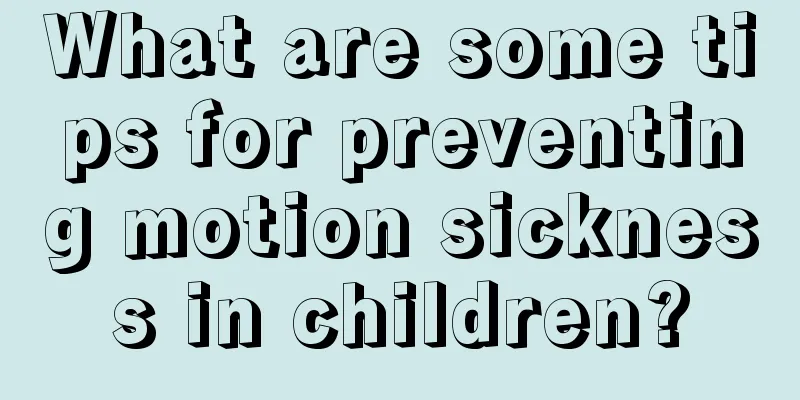5 tips to help your child sleep well

|
The incidence of sleep disorders among Guangzhou citizens is as high as 47%, making it one of the "sleep-hard" cities in China! What's even more surprising is that 25% of children in China have sleep disorders! Among them, the total prevalence of sleep disorders in children aged 0-5 is 20.8%. Epidemiological surveys show that among 1,099 children aged 2-12 in Zengcheng, Guangzhou, the incidence of sleep disorders is as high as 22.2%! Health experts point out that long-term poor sleep quality will affect the secretion of growth hormone and the health of various organs, and directly affect the development of children's physical, emotional, cognitive and social adaptability. 5 tips to help your child sleep well: 1. Let your child go to bed and get up on time every day. 2. The bed is for sleeping. Children should not be allowed to watch TV or read books on the bed.3. Do appropriate physical activities during the day, but do not exercise before going to bed. 4. Don’t be hungry before going to bed, but don’t eat too much, and don’t drink too much water or beverages.5. The lighting should be moderate when sleeping, and the surrounding colors should be as soft as possible. Children's sleeping habits are deeply influenced by their parents: "Most children develop sleep disorders due to their parents' parenting habits." Sleep disorders are not just a "disclosure" for adults, they can also occur in children. Unlike sleep disorders in adults, sleep disorders in children are not characterized by difficulty falling asleep or awakening early, but are mainly manifested as going to bed too late (some children go to bed after 11 o'clock) and restless sleep (including tossing and turning, night terrors, sleepwalking, etc.). Adults' daily routines will directly affect children's sleep. Especially for some children who sleep in the same room with their parents, their parents like to watch TV and play with mobile phones until late at night, and their children usually can only fall asleep after these times. This is the main cause of sleep disorders in children. The second is mental stimulation, such as being frightened, tense family relationships, and emotional repression; there are also disease factors, the most common of which is specific skin diseases, which affect sleep due to itching and scratching of the skin at night. In addition, children who eat too much before going to bed, or who have a yin deficiency and hyperactivity of fire, or who frequently consume high-protein, high-calorie foods and become "hot-tempered", are also more likely to have sleep disorders. Poor sleep, slow growth, bad temper As the saying goes, "It is better to sleep early in the morning than to eat ginseng." Sleep plays an important role in a child's growth and development. This is because growth hormone is secreted in the largest amount during sleep; the synthesis of various nutrients in the human body can only be better completed during sleep and rest. Therefore, if children get enough sleep, they will grow and develop faster and grow taller. Otherwise, they will be thinner. "Lack of sleep can also harm multiple organs such as the heart, spleen, kidneys and the digestive system. Experts point out that "damage to these organs may cause symptoms such as palpitations, forgetfulness, irritability, dry eyes, shortness of breath, fatigue, inattention, and anorexia." People who lack sleep often have 'panda eyes', which appear to be dark eye sockets, but in fact it is insomnia that causes damage to the internal organs. ” Most children with insomnia do not need treatment Experts point out that most children’s sleep disorders do not require treatment. The most important thing is for parents to set an example, change bad sleeping habits, and help their children develop good work and rest routines. 10 pm to 1 am is the peak period of growth hormone secretion. The best sleep time for children is from 9 pm to 8 am the next morning. Combined with a daytime nap, most children should ensure more than 9 hours of sleep a day. "Infants under six months old sleep an average of more than 20 hours a day; toddlers sleep 12-14 hours a day; school-age children sleep an average of about 10 hours a day; as they age, their sleep period gradually decreases to seven or eight hours a day." Due to individual differences, fluctuations within 2 hours are normal. It mainly depends on whether the child is energetic the next day. If the baby does not feel uncomfortable after waking up (such as poor mental state, memory loss, anxiety and irritability, etc.) and has no developmental problems, there is no need to worry too much. However, if the child suffers from poor sleep for a long time and experiences the above-mentioned discomfort symptoms after waking up more than 3 days a week, and the situation is serious, parents should take the child to a specialist hospital for formal treatment. |
<<: 10 tips to prevent bedwetting in children
>>: Be careful! These 8 bad habits make children stupider and stupider
Recommend
What should I do if my 6-year-old child has tooth decay pain?
Even if there are adults around who constantly re...
Elbow dislocation in children
It is the nature of children to love playing and ...
Causes of allergic dermatitis in children
When it comes to diseases like dermatitis, many p...
What are the physical cooling methods for children with high fever?
Children have limited sleeping ability. If you do...
What should I do if my baby has rotten teeth?
Some children will start to grow teeth when they ...
Baby's heart fire is heavy. With these recipes, these symptoms can be improved
Most of the time, babies have heavy heart fire be...
What medicine is good for children with fever and cold?
When the baby has a cold and fever, parents are a...
Children's hip ultrasound
Children will always encounter various problems a...
What do children with obesity eat?
The phenomenon of childhood obesity can be said t...
How to deal with children's fever and convulsions?
When a child has a high fever, it is still very e...
Why do children have white spots on their bodies?
It is normal for vitiligo to occur in adults beca...
Why do children's hands and feet itch?
We adults often have problems, and the same is tr...
What to do if your one-year-old baby has indigestion
We all know that the baby's growth has a grea...
What should we pay attention to when we have acute rash in children?
Roseola infantum occurs frequently, but not all p...
Causes of intestinal gas in children
When babies are young, they are prone to some dis...









